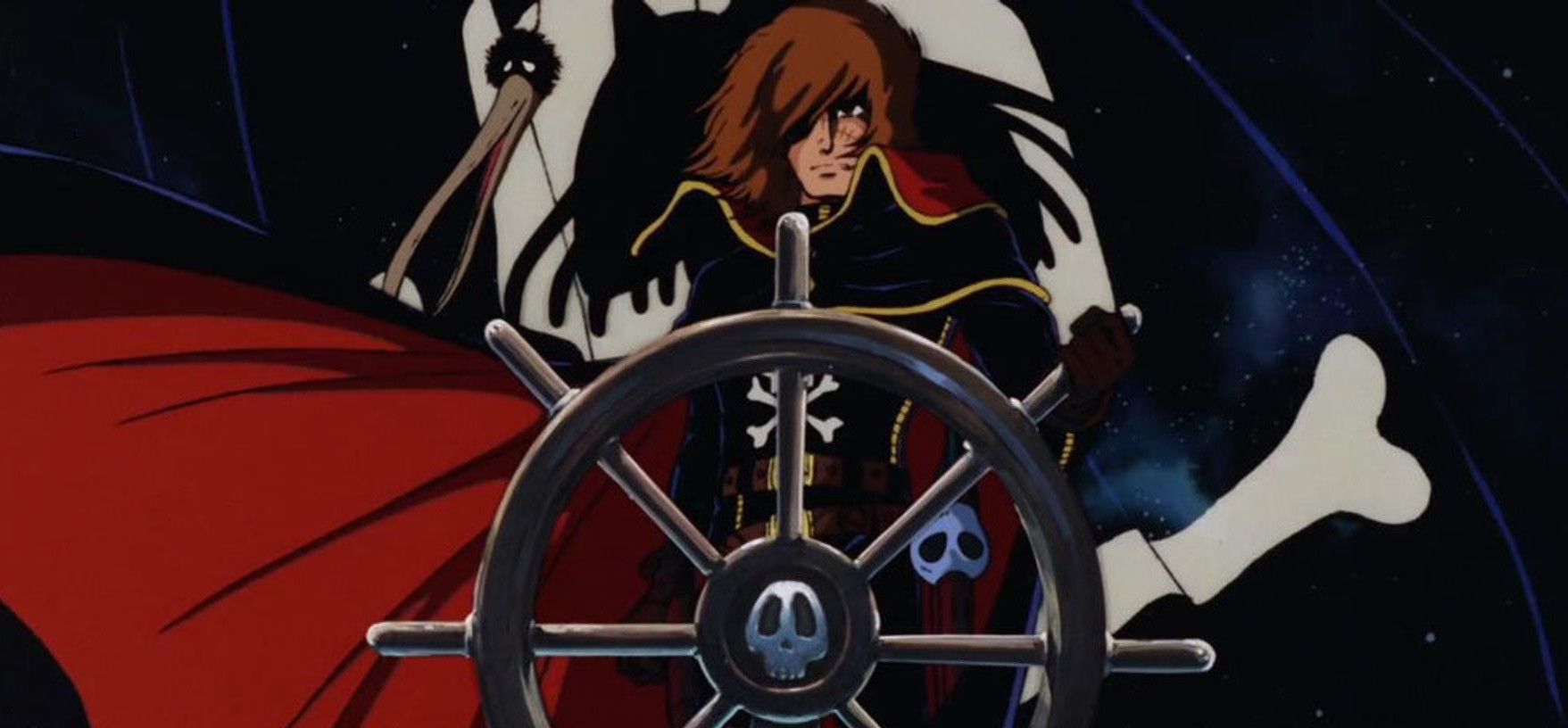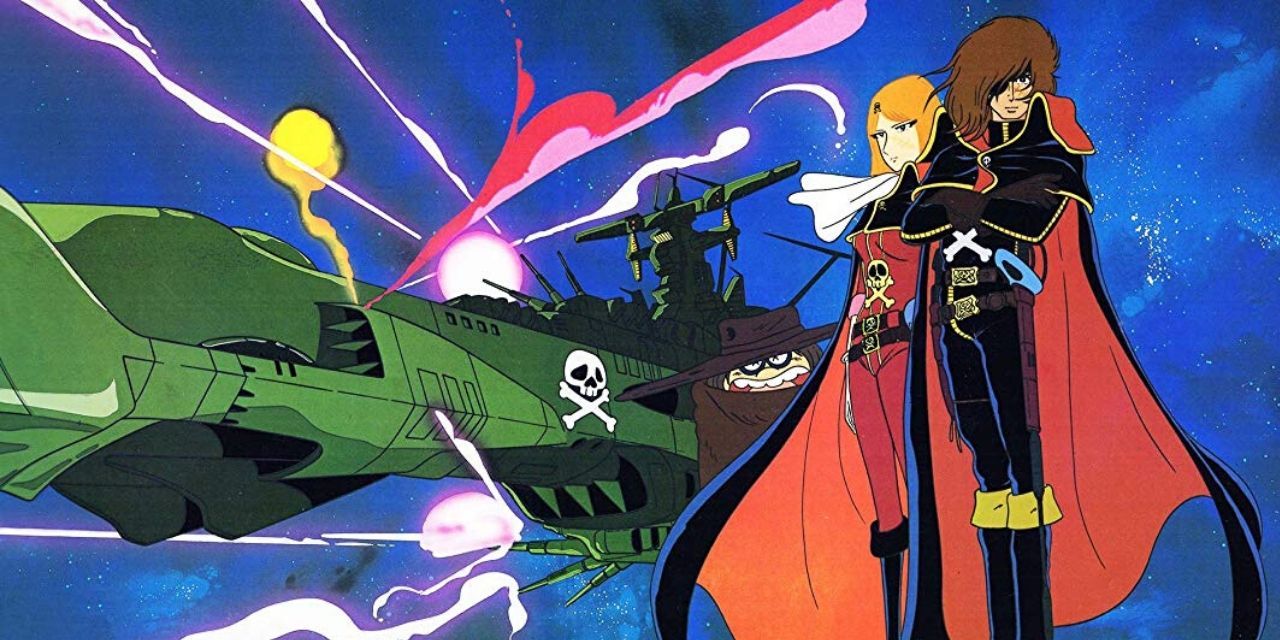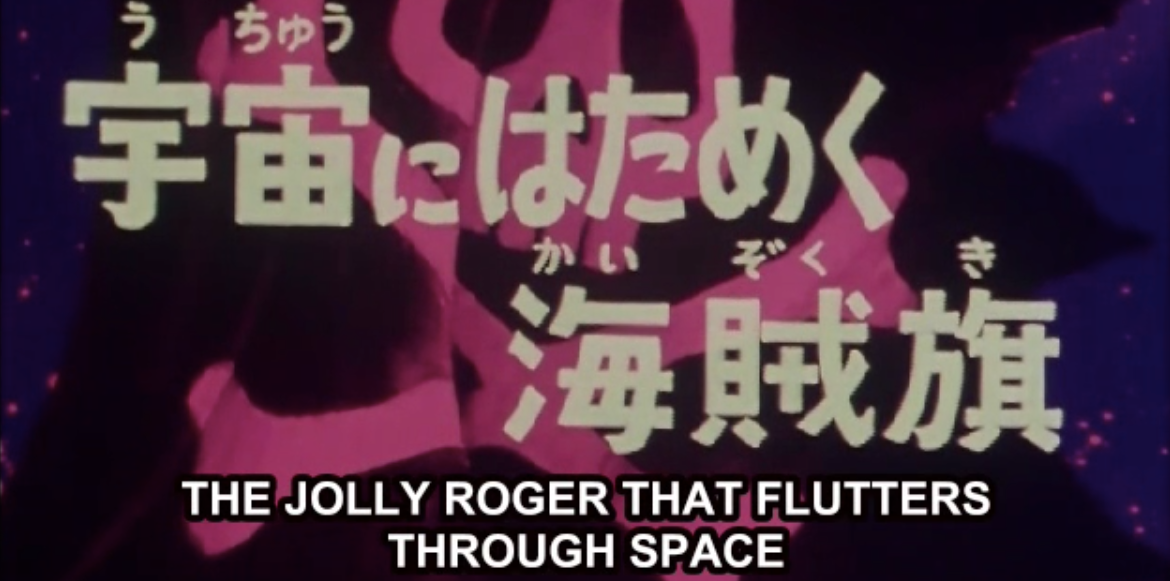Leiji Matsumoto's space opera Space Pirate Captain Harlock tells the story of its hero Captain Harlock's quest against both the ennui of his homeworld and a race of primeval space-faring conquerors. Renowned for both its existential themes as well its significant impact on four decades of successor space opera anime, the animated series is notorious for its 1981 English-language dub, which adopts a sardonic and irreverent approach to the series' lofty, painfully sincere themes of alienation, agency, loyalty and freedom.
However, apart from skewering a beloved, though admittedly self-serious manga and anime, this notorious localization highlights the foundational role of tone in worldbuilding, and the difficult and delicate task adaptations bear in bringing this to new viewers. For Harlock in particular, the failure of this adaptation can be linked directly to both its mishandling of the delicate balance of the series' aggressive existential themes and its various tonal elements.
Tone, Explained
A simple definition of tone is the audience's impression of the creators' intended attitude for the subject matter -- both its settings and personalities as well as its emotional stakes and themes. Tone is subjective, and while broad terms exist (such as "light" vs. "dark"), it's difficult to define precisely. Every conceivable aspect part of a series -- its plot, art design, dialogue and music -- all contribute to its tone. In addition to this, in anime, tone tends to be difficult in its unpredictability, often varying as much within a single series as within a genre. However, even among other space operas, given the burden of communicating and expressing its lofty and complex concerns, the tone of Harlock is remarkably unsubtle.
The animated adaptation's initial 1978 release received an English dub through the production company ZIV International and the Family Home Entertainment, a VHS distributor. Coming off the heels of the success of titles such as Robotech and Mobile Suit Gundam in Japan, the English-language Harlock was unique in format. Its localization arrived in two volumes; the first mostly mirrored the original, while the second was, to say the least, much different -- a decision that proved disastrous for the series' future in North America.
A Jolly Roger that Flutters in Space
Unlike other irreverent and humorous dubs such as the infamous "Abridged" series of Dragon Ball Z or the legendary Ghost Stories dub, the trouble with ZIV's Harlock isn't so much its attempt to skewer the series' stock romantic tropes but rather that its humor gets in the way of what made Harlock compelling. While the series is complex and mature, it isn't subtle; its design is loaded with symbolic imagery and its dialogue with philosophical resonance, such that its atmosphere feels insistent and oppressive at times. Despite this, like any other anime, Harlock features frequent moments of lightness, serving a vital function of "comic relief" -- allowing its viewers a break from its demanding (yet worthwhile) sincerity.
This is endemic throughout Leiji Matsumoto's works, from Gun Frontier to Space Battleship Yamato and Galaxy Express 999. All of these feature a deliberately cartoonish facade, which over time reveals weighty, even disturbing stories and themes. For Harlock in particular, like other anime, its impressive musical score, voice direction and action work together to create an emotional frame that makes its peculiar aims accessible. Given the delicate interdependence between the various tonal elements, ZIV chipping away at this emotional foundation left the entire series unbalanced.
Although Harlock's popularity would inspire a host of further adaptations and continuations in diverse media, becoming widely influential in later 80s and 90s anime, these thorny problems of tone in its North American localization would persist for decades. The lesson then is that, not unlike accepting that Harlock's Jolly Roger may still somehow flutter in outer space, suspending one's disbelief regarding the unabashedly emotional world of Space Pirate Captain Harlock remains an unavoidable -- yet ultimately worthwhile -- price of entry.



